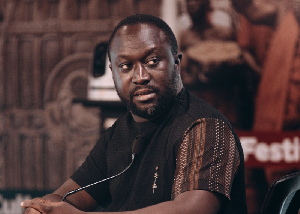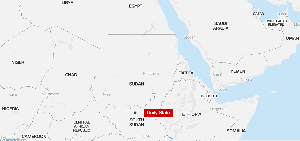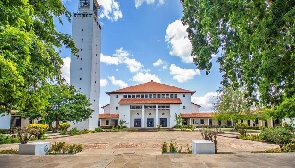Three recovered COVID-19 officials of the Ghana Health Service (GHS) in the Upper East Region have shared their experiences with the Ghana News Agency (GNA) after they resumed normal official duties.
The three, speaking with the GNA in Bolgatanga, on the sideline of a welcome ceremony for 11 recovered staff of the Service included Dr Gillian Bogee, a Senior Medical Officer at the Neonatal Intensive Care Unit (NICU) of the Upper East Regional Hospital.
Madam Regina Badii, a Senior Midwifery Officer at the Obstetrics and Gynaecological Unit of the same hospital, said “When I was informed I had COVID-19, I was very down-hearted because I was breastfeeding. I was thinking about my baby, whether she is also infected or not, I was brought to the treatment centre together with my baby, but she tested negative.”
According to her, life in the treatment centre was not easy, “I felt lonely because my daughter could not wear a mask, we were always restricted to the room. The nurses did their best, they came in to check our vital signs and bring us food. When the second test was done and I was negative, I was so happy.”
Madam Badii said she and her daughter were subsequently discharged after the third test results turned negative.
“COVID-19 is real, most people are having it and walking about healthy without any signs and symptoms but may test positive.
“I was not showing any signs and symptoms, I had other signs and symptoms which I took for a different condition. I suffered a headache, muscle pull and joint pains and I thought it was malaria which I was treating. I also had chest pains, so you can have COVID-19 but not show the real signs and symptoms such as high temperature which I did not experience.”
The Midwifery Officer said she acquired the virus in her line of duty, adding that she could have been infected through any other means apart from managing patients, “Anyone can get it from anywhere, so I want to urge the general public to stop the stigma”.
Speaking to the GNA in a separate interview, Dr Bogee said she exhibited all the signs and symptoms of COVID-19 after she contracted the virus in her line of duty.
“I actually had the worst and complicated form of COVID-19 and had to be airlifted to the Korle-Bu Teaching Hospital where I was treated in the Medical Intensive Care Unit (ICU) for eight days and then moved to the Fevers Unit also for 12 days.”
“I was given the best of care at the Medical ICU and the Fevers Unit in Korle-bu, and I say thank you to the team who took care of me.”
Dr Bogee said public health emergencies such as COVID-19 was stressful for people and communities, adding that fear and anxiety could lead to social stigma for recovered persons, which had diverse effects on their emotional or mental health.
She said it was critical for members of the public to join the fight against stigmatization of both COVID-19 patients and those who had recovered, “You have a role to play as an individual and I also have a role to play as a health worker by helping people cope with stress, and in all, we can learn about the coping strategies in this COVID-19 outbreak”.
Similarly, Mr Eric Dakura, a Superintendent Field Officer at the Disease Control Unit of the Regional Health Directorate, said he got infected in his line of duty as a member of the Regional Emergency Response Team for COVID-19, after the team interviewed the first suspected COVID-19 pregnant woman who turned out positive, to ascertain at the time whether she met the case management criteria for the virus or not.
“The first two days after I had contact with the lady, I started coughing, and the cough came between 12midnight and 0100hours. It came for only two days and stopped.”
He said while in self-isolation, his family, especially his wife was stigmatized, “It was difficult for my wife to even go to the market. Things were actually difficult for her.
Contracting the virus was not a big deal for me because I was doing my job and I was actually in the war front ensuring that we tracked persons who showed signs and symptoms to get them isolated and treated to prevent the spread”.
General News of Wednesday, 10 June 2020
Source: GNA

















